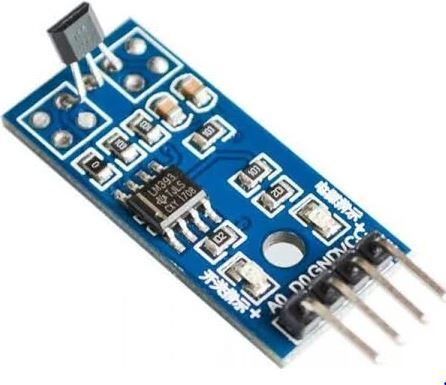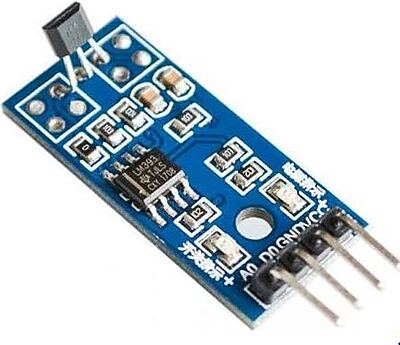

Hall Effect Sensor Module
A Hall Effect sensor module is an electronic device that incorporates a Hall Effect sensor into a convenient package for ease of use and integration into electronic circuits. The Hall Effect is a phenomenon in physics where a voltage difference (Hall voltage) is created across a conductor when subjected to a magnetic field perpendicular to the current flow. Hall Effect sensors are used to detect the presence, strength, and polarity of magnetic fields.
Hall Effect sensor modules are commonly used in various applications, including position sensing, current sensing, and speed detection.
Non-returnable
Rs.50.00
Choose Quantity:
Share:
Product Details
Hall Effect Sensor: The core component of a Hall Effect sensor module is the Hall Effect sensor itself. It is typically a semiconductor device that responds to changes in magnetic fields by producing a voltage output proportional to the strength and polarity of the magnetic field.
Convenient Package: Hall Effect sensor modules are designed for easy integration into electronic projects. They come in various packages, including through-hole and surface-mount packages, to suit different mounting and wiring needs.
Supply Voltage: Hall Effect sensor modules often operate at low voltages, commonly in the range of 3.3V to 5V, making them compatible with a wide range of microcontrollers and digital systems.
Digital and Analog Output: Depending on the specific module, Hall Effect sensors can provide both digital and analog outputs. Digital output sensors typically provide a high or low voltage signal to indicate the presence or absence of a magnetic field, while analog output sensors provide a voltage that varies with the magnetic field's strength.
Polarity Detection: Some Hall Effect sensor modules can detect the polarity of the magnetic field, distinguishing between north and south poles.
Adjustable Sensitivity: Many Hall Effect sensor modules allow you to adjust the sensitivity, allowing customization for specific application requirements.
Applications:
Hall Effect sensor modules are used in a wide range of applications, including:
Proximity Detection: They can detect the presence or absence of a magnet, making them useful for proximity sensing in applications like door switches, position sensors, and limit switches.
Current Sensing: Hall Effect sensors can measure the current flowing through a conductor by detecting the magnetic field generated by the current.
Speed Detection: In automotive applications, Hall Effect sensor modules are used for measuring wheel speed, vehicle speed, and position in systems like anti-lock braking systems (ABS) and speedometers.
Magnetic Field Measurement: They are used for measuring and mapping magnetic fields in scientific and industrial applications.
Motor Control: In brushless DC (BLDC) motors and servo motors, Hall Effect sensors are used for rotor position detection.
Security Systems: They can be used in security systems to detect the opening or closing of doors and windows using magnets.
Rotary Encoders: Hall Effect sensor modules are used in rotary encoders to detect the position and speed of rotating objects.
Electronic Switches: They can replace mechanical switches in applications where long-term reliability and contactless operation are required.


